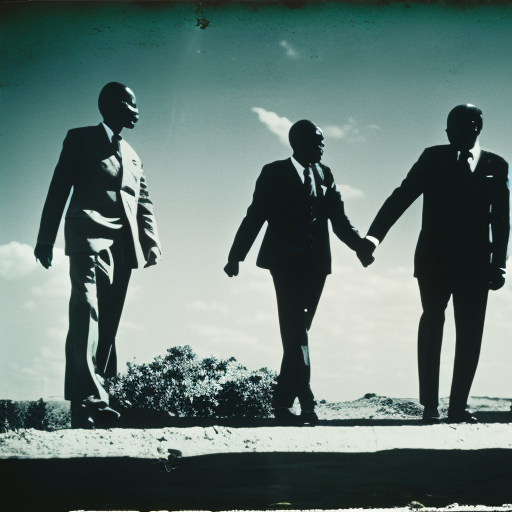Negotiations to end apartheid in South Africa
Negotiations to end apartheid in South Africa were a series of talks and discussions that took place between the late 1980s and early 1990s. These negotiations aimed to bring an end to the oppressive system of racial segregation and discrimination that had been in place since 1948. The negotiations were a crucial step in the transition of South Africa towards a democratic and non-racial society.
The Background:
Apartheid, a policy of racial segregation and discrimination, was implemented by the National Party government in South Africa in 1948. Under apartheid, the majority Black population was subjected to various forms of oppression, including forced removals, discriminatory laws, and limited political rights. The African National Congress (ANC), led by Nelson Mandela, and other anti-apartheid organizations fought against this system through protests, strikes, and armed resistance.
The Beginnings of Negotiations:
In the late 1980s, South Africa faced increasing domestic and international pressure to dismantle apartheid. The government, under President F.W. de Klerk, initiated a series of reforms, including the release of Nelson Mandela from prison in 1990. These reforms created an opportunity for negotiations between the government and the ANC.
The Groote Schuur Minute:
The Groote Schuur Minute, signed in May 1990, marked the beginning of formal negotiations between the government and the ANC. In this agreement, both parties committed to working towards the peaceful resolution of the country’s problems and the establishment of a non-racial democracy. The ANC suspended its armed struggle, and the government lifted the ban on the ANC and other anti-apartheid organizations.
The Convention for a Democratic South Africa (CODESA):
The Convention for a Democratic South Africa (CODESA) was established in December 1991 as a forum for negotiations. CODESA brought together various political parties, including the ANC, the National Party, and other smaller parties, to discuss the future of South Africa. However, negotiations in CODESA faced significant challenges, including disagreements over the structure of the future government and the protection of minority rights.
The Transition to Democracy:
Despite the challenges, negotiations continued, and in 1993, the ANC and the government reached an agreement on a transitional constitution. This constitution provided for a multi-racial government and established an interim government of national unity. It also outlined the process for the first non-racial elections, which were held in April 1994.
The Election of Nelson Mandela:
The 1994 elections marked a historic moment in South Africa’s history. Nelson Mandela, the leader of the ANC, was elected as the country’s first Black president. The elections were widely regarded as free and fair, and the peaceful transition of power signaled the end of apartheid and the beginning of a new era for South Africa.
The Truth and Reconciliation Commission:
Following the end of apartheid, South Africa established the Truth and Reconciliation Commission (TRC) in 1995. The TRC was tasked with investigating human rights abuses committed during the apartheid era and providing reparations to victims. The commission played a crucial role in promoting healing and reconciliation in the country.
The Legacy:
The negotiations to end apartheid in South Africa were a significant achievement in the country’s history. They brought an end to a system of racial oppression and paved the way for the establishment of a democratic and non-racial society. The negotiations also demonstrated the power of dialogue and compromise in resolving conflicts and promoting peace.
In conclusion, the negotiations to end apartheid in South Africa were a complex and challenging process that spanned several years. They involved the government, the ANC, and other political parties working towards a peaceful resolution and the establishment of a non-racial democracy. The successful outcome of these negotiations led to the election of Nelson Mandela as the country’s first Black president and marked the end of apartheid in South Africa.












